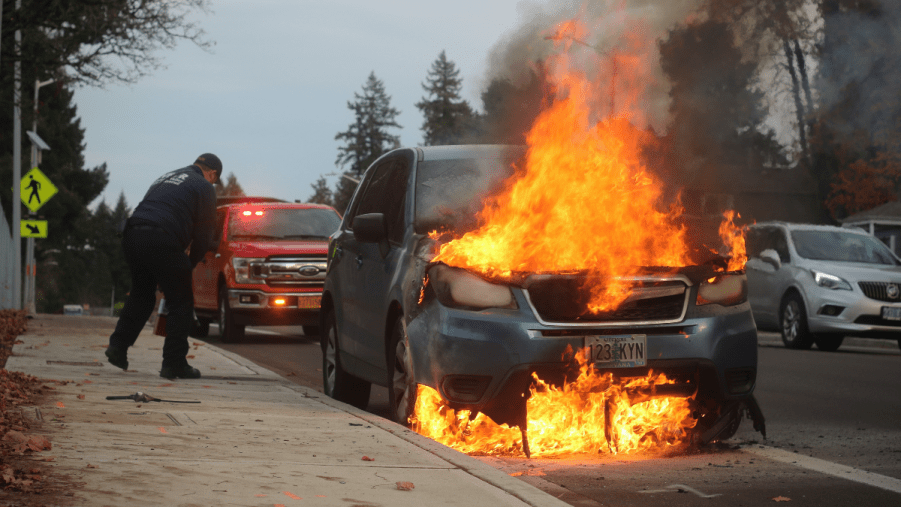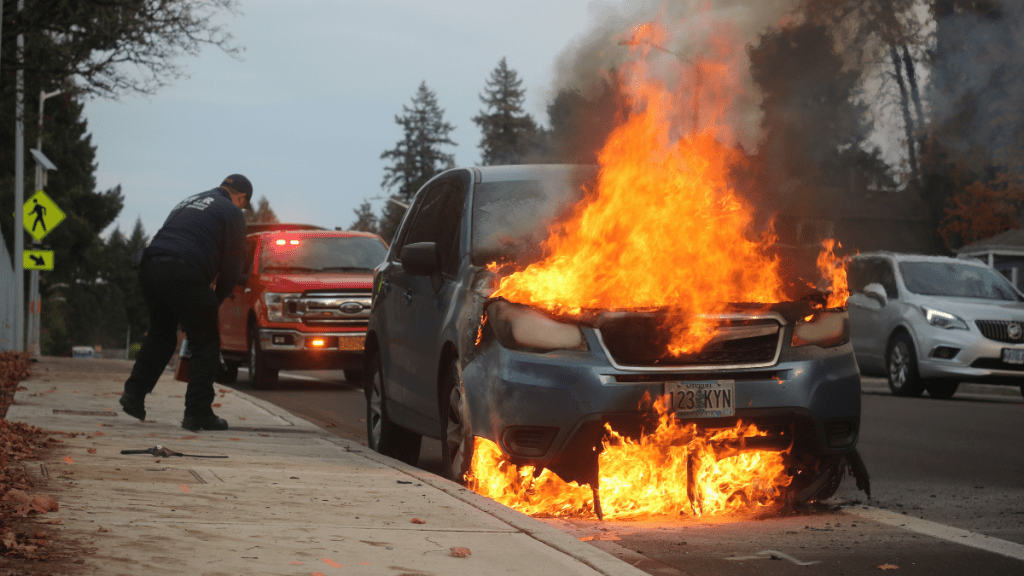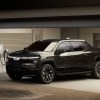
Electric Vehicles Catch Fire Considerably Less Than Gas Cars
Perhaps you’ve seen news stories about electric vehicles such as Teslas and the Chevy Bolt catching on fire. Upon seeing these dramatic images and videos, you might think that EVs are dangerous and prone to fires. However, a recent study shows that electric vehicles catch fire considerably less than gas-powered cars.
Electric vehicle vs. gas-powered car: Which one is more prone to fires?

As reported by KBB, AutoInsuranceEZ conducted a study on car fires. The AutoInsuranceEZ researchers “examined data from the National Transportation Safety Board and compared it to sales data from the Bureau of Transportation Statistics.” Based on the study, electric vehicles catch fire much less frequently than gas-powered cars. However, hybrid vehicles have the most frequent number of fires.
Here are the detailed results of the car fire study:
- Electric vehicles: 25 fires per 100,000 sold
- Gas-powered cars: 1,530 fires per 100,000 sold
- Hybrid cars: 3,475 fires per 100,000 sold
The study also reviewed the number of fire-related vehicle recalls that were “filed with the National Highway Traffic Safety Administration in 2020.” Gas-powered cars had by far the most number of recalls. EVs were second for recalls, and hybrids were a distant third. However, something to keep in mind is that the researchers only collected recall data in 2020, which was before the Chevy Bolt recalls during last year.
What causes electric vehicle fires?
It makes sense why electric vehicles catch fire less often than gas-powered cars. This is because gas-powered cars rely on combustion, or the burning of fuel, to move. EVs, though, don’t use any feature that involves burning to propel the car forward. However, electric vehicle fires are often more difficult to extinguish than fires in gas-powered cars. Also, EV fires tend to have a greater intensity.
So what causes electric vehicles fires? The source of fires in EVs is defective lithium-ion batteries. When the lithium-ion batteries charge or reach a temperature beyond their safe limit, they can catch fire.
Also, the reason why electric vehicle fires are more challenging to extinguish and have a greater intensity is because lithium-ion batteries are more difficult to keep cool. As noted by AutoInsuranceEZ, “even after appearing to be turned off for 24 hours, the batteries can generate enough heat to re-ignite.” Another contributing factor is that, since EVs are relatively new, many fire departments don’t know how to take the necessary actions to effectively extinguish the fires.
What should you do if your car is on fire?
Regardless of the type of car you drive, a fire is a very dangerous problem, and you should take the necessary actions to ensure the safety of you and your passengers. First, be on the lookout for any problems with your car, such as a dashboard warning indicator lighting up or the smell of smoke.
If your car catches fire, you should get away from it as soon as possible. Get all passengers out of the car and don’t return to collect any personal belongings. Move at least 100 feet away from the burning car. Also, don’t stand in the road where you could risk getting hit by another car. Call 911 and wait for the fire department to arrive. Additionally, if possible and safe to do so, alert oncoming cars to the fire.


